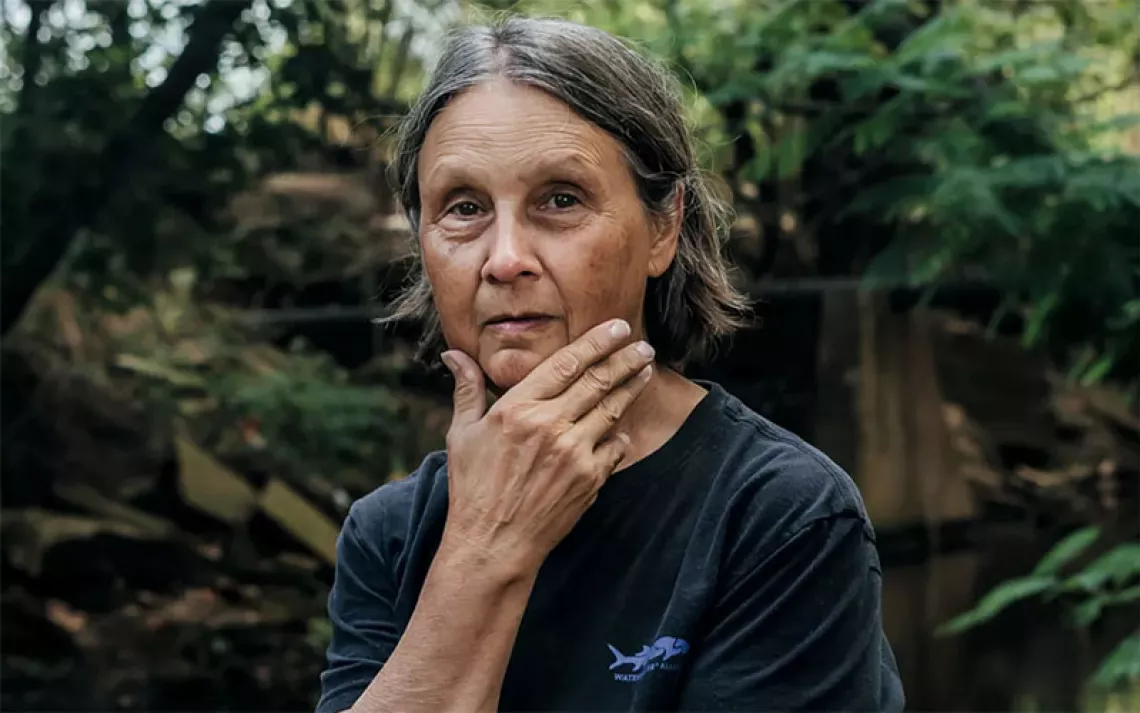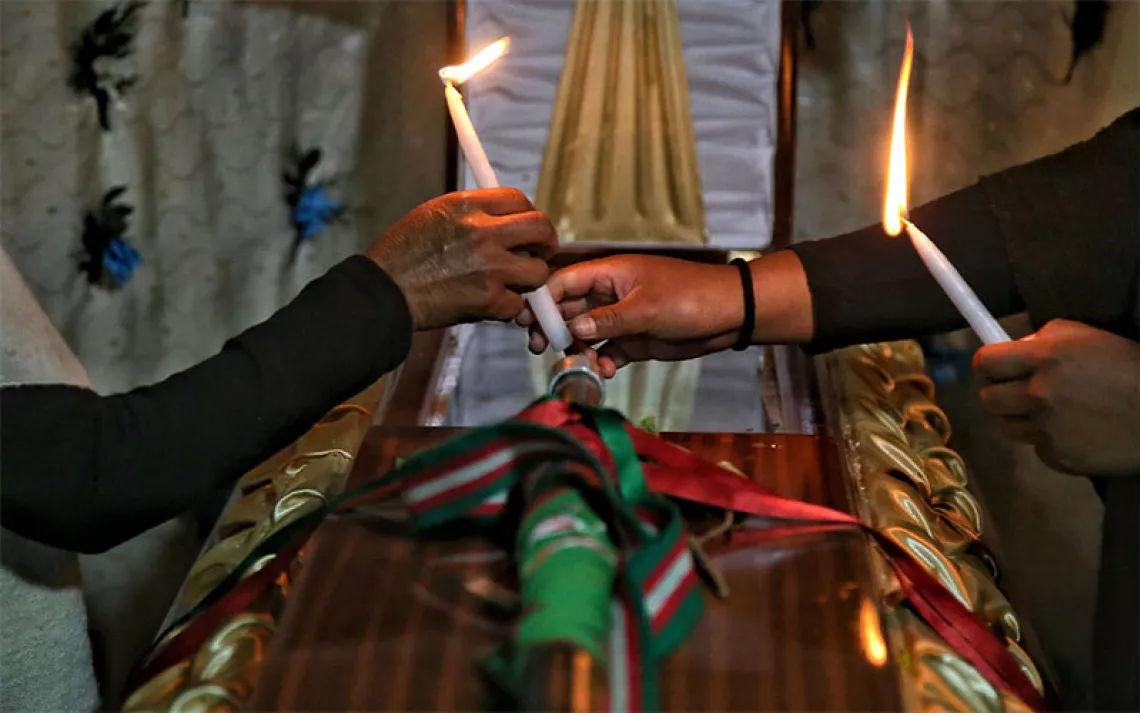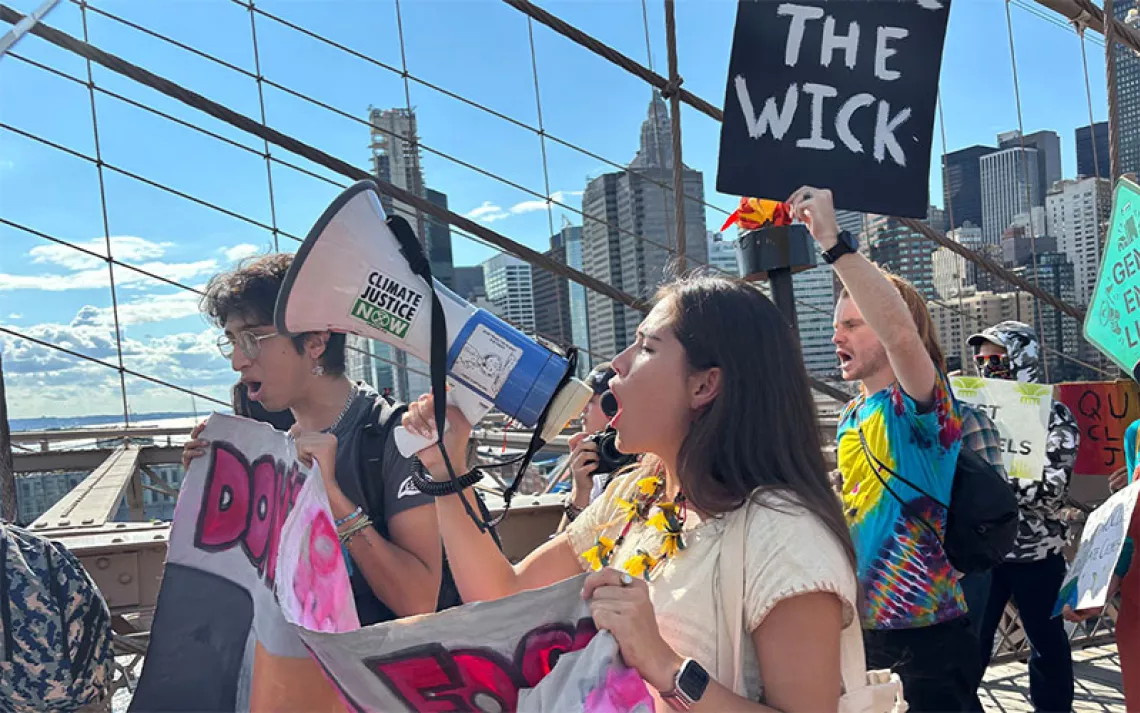Refica Attwood Is Antigua's Proudest Treehugger
This activist turned the forest she loved into a national park

Refica Attwood, executive director of Wallings Nature Reserve in Antigua. | Photo by Vanessa Hall
Refica Attwood was four years old when she began riding a donkey into the hills at dawn on the Caribbean island of Antigua. She would accompany her father daily into the forest next to John Hughes Village, where he collected branches to sell to farmers, fishermen, and hotels for use in fencing. She and her siblings picked guavaberries, collected palm leaves, and discovered hidden trails and medicinal plants. They also learned about their dad's sustainable logging practices.
The family was poor. While growing up, Attwood would hear other kids, and even adults, make derogatory comments about them being uneducated, working-class loggers. Hiking became her escape, a habit that continued after she had her first child at 18. "I was out of school," she says. "When I was feeling overwhelmed, I would take walks in the Wallings Forest."
Wallings's 1,680 acres of trees are all that remain after the British razed Antigua's tropical forests to plant sugarcane three centuries ago. The land had never been formally protected. Over the years, Attwood started to notice more and more garbage. Locals were hosting events and leaving trash behind or using the area as a dump site. "Invasive species were taking over the forest," she says. "Old trees were dying. Trash was everywhere. It looked like something you'd find in a horror movie."
Her father's advice was simple: Act or stop complaining. But at 20, she lacked the confidence to try to do anything about it. Discouraged, she stopped hiking for six years. When she was 26, she joined the family business, becoming the only female logger in Antigua. Once she was working with her dad, she could no longer ignore the forest's decline. "I thought, 'What am I going to tell my kids—I tried and failed or I failed to try?'"
With a notebook and a camera, Attwood documented the damage. For a year, she met with government officials to discuss how to save Wallings. She submitted a business plan and recruited volunteers to clean up the forest. In 2016, she received a $50,000 grant from the Global Environment Facility to create trails, train guides, and set up facilities.
In October 2018, Wallings Nature Reserve opened as Antigua and neighboring Barbuda's first community-managed national park, with Attwood as its executive director. The income generated supports 10 people—rangers, tour guides, and artisans—and their families. "If you have an idea, however foolish it might seem, work on it," Attwood says. "It might change not only your life but also the lives of others."
This article appeared in the March/April 2020 edition with the headline "The Proudest Treehugger."
BITTERSWEET
Sugarcane farming has contributed to deforestation in threatened ecosystems around the world—for example, in Brazil's Atlantic Forest, which has been reduced to 7 percent of its original size. Globally, sugarcane covers 65 million acres of land.
 The Magazine of The Sierra Club
The Magazine of The Sierra Club



